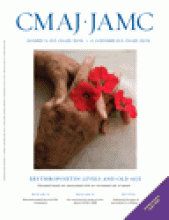Though Halloween is over, the piles of loot remain. Parents of young children will be rationing out candies, mini-chocolate bars and other sugary treats for weeks to come. On the packages of many of those treats will be an expected name: Cadbury. Next to that name may be another that some nutrition advocates say shouldn’t be there: UNICEF.
UNICEF, the United Nations Children’s Fund, is a global advocate for children and one of the most recognized charities in the world. It is also a partner with candy maker Cadbury Adams Canada Inc., which has given UNICEF $500 000 over three years to build schools in Africa. In exchange, Cadbury is allowed to put the widely recognized UNICEF logo on packaging for its products.
Some people don’t see anything wrong with this partnership, claiming that children are going to eat candy on Halloween anyway, and $500 000 for schools in Africa is much better than $0 for schools in Africa. But some health experts believe UNICEF made a poor choice by partnering with a company that makes high-calorie food targeted at children, especially considering that one of the charity’s causes is promoting proper nutrition for children in developing countries.
Critics of partnerships between industry and charity claim it is unlikely that businesses have altruistic intentions; rather, they are looking to associate themselves with good causes to create a “halo effect” in the hopes of improving sales.
“These are eat-more, sell-more strategies,” says Marion Nestle, a professor of nutrition, food studies and public health at New York University in New York City. “It is sugarwashing. It sends a message that if you buy this candy, you are doing good for uneducated kids in Africa.”

Dinka tribe girls attend lessons in a girl’s school run by UNICEF in the southern Sudan.
Reuters/George Mulala
According to Nestle, whose books on nutrition include What to Eat and Food Politics, sponsorship by food companies is a serious issue. But corporate sponsorship by the food industry — unlike say, the tobacco industry — is not subject to much scrutiny. This may explain how such partnerships as the much-criticized 2005 deal between the American Diabetes Association and Cadbury Schweppes, a major producer of soft drinks, come to exist. Other companies that sell high-calorie foods, such as Frito-Lay and Kentucky Fried Chicken, have associated themselves with the fight against breast cancer, a tactic that has been labelled “pinkwashing.”
But health messages from business people whose business is junk food can be hard to swallow. “It’s not because these people are evil,” says Nestle. “It’s because their job is to sell more product.”
UNICEF, however, sees no problem with accepting funds from a candy maker. “Cadbury Adams is one of several corporate supporters of UNICEF Canada’s seasonal Halloween awareness and fundraising campaign. UNICEF is proud of its 60-year association with Halloween, which has grown into a great tradition embraced by Canadians who have raised millions of dollars to assist UNICEF in helping the world’s most vulnerable children,” Kathleen Powderly, a UNICEF communications consultant, writes in an email.
“Funds from Cadbury Adams support of the seasonal UNICEF Campaign will go towards sending one million boys and girls to school in Rwanda and Malawi. UNICEF’s logo, along with information about the work UNICEF is doing in Africa, thanks in part to the generosity of Canadians, appears on Cadbury Adams Halloween specific product packaging.”
Likewise, Cadbury is proud of its partnership with UNICEF. “Cadbury is pleased to support UNICEF in their efforts to raise awareness of children’s needs in many developing countries around the world,” Michelle Lefler, a Cadbury spokesperson, writes in an email. “Cadbury currently promotes UNICEF’s great work during the Halloween season, as seen on our current Halloween products, now available in store. The School House Project was the name of our 2009 Halloween program that united communities across Canada in an effort to virtually ‘build’ schools for children in Africa, as part of UNICEF’s Schools for Africa program.”
Though UNICEF gained a half-million dollars from the partnership, it could come at the cost of damage to its good name, says Nestle. “They have to decide what’s more important to them,” she says. “Is the money more important than their reputation?”











